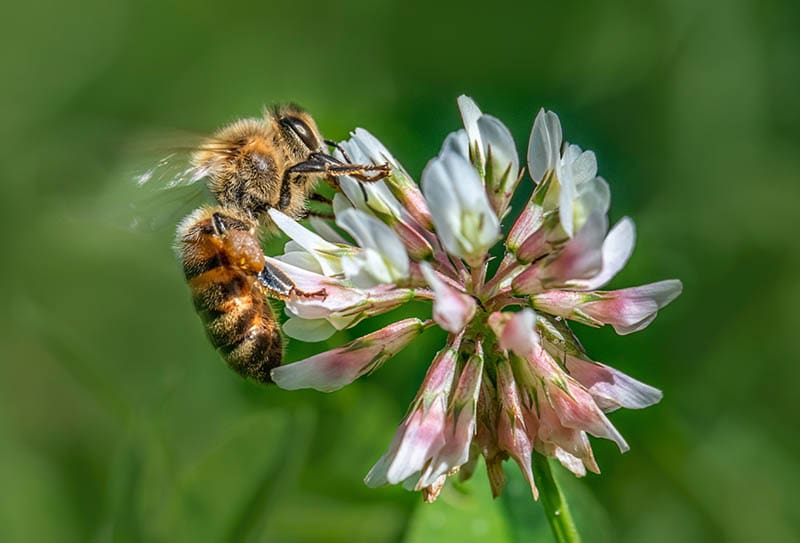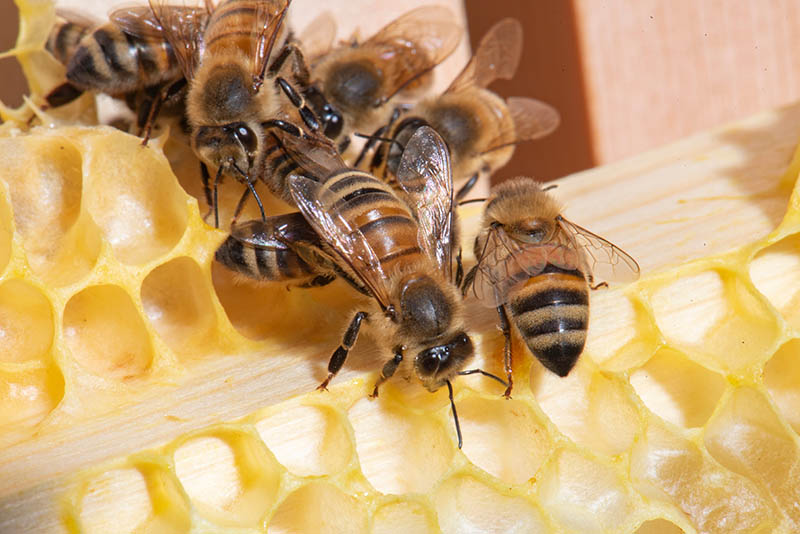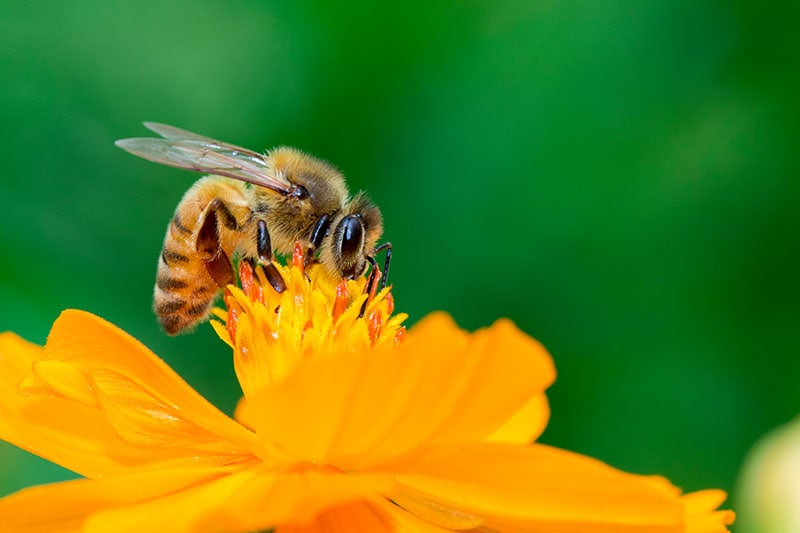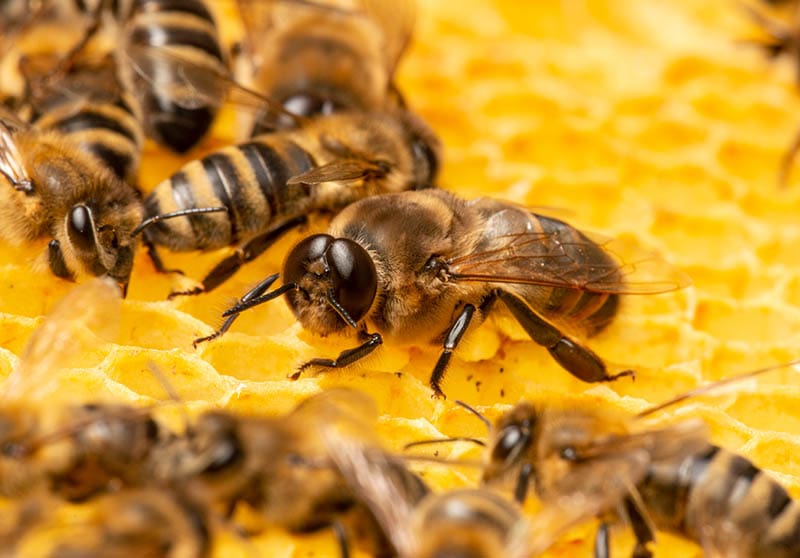What Is the State Insect of Maine? Facts, History, & FAQ
-
Pete Ortiz
- Last updated:

Maine’s state insect is the honeybee. It was chosen by the legislature in 1975. The honeybee was chosen as Maine’s state insect because of its importance to agriculture and the state’s economy.
Interested in learning more? Read the full scoop below to see why the amazing honeybee is Maine’s state insect!
Maine’s State Insect: The Honeybee

The honeybee (Apis mellifera) is a flying insect that lives in hives. Honeybees are important to agriculture and the economy of the state of Maine. They pollinate crops, which helps farmers to grow healthy plants and produce bountiful harvests. Honeybees also make honey, which is a delicious and nutritious food.
This is all pretty common knowledge, so why exactly did Maine decide to make the honeybee its state insect? As stated, this little bug has had a profound impact on Maine’s economy. In fact, it’s estimated that the honeybee is responsible for contributing upwards of $150 million to the state each year. That’s a lot of money, and it’s all thanks to the hard work of these tiny creatures.
What Would Happen Without Honeybees?
But the honeybee’s contributions don’t start and stop in Maine. The truth is that if it wasn’t for honeybees, we would all be in big trouble. Honeybees are vitally important to the environment, as they help to keep ecosystems in balance by pollinating plants and flowers. This helps to ensure that there is a healthy and diverse food supply for other animals.
Without honeybees, it’s believed that up to one-third of the food we eat would disappear. So, not only are they responsible for making our state’s economy thrive, but they are also crucial to our very survival. That’s certainly something to buzz about!
What’s more, scientists believe that life on Earth as we know it would cease to exist in just four short years if all the honeybees suddenly vanished or died.
So it’s easy to see why the state of Maine values the honeybee so highly and why it was chosen to be the official state insect. These creatures play a vital role in our lives, and we are truly indebted to them.
You would think more states would recognize the honeybee for the role it plays in our very survival. It turns out that many states do.

How Many States Have the Honey Bee as Their State Insect?
Including Maine, there are 16 states in the United States of America that have chosen the honey bee as their state insect.
- Arkansas
- Georgia
- Kansas
- Louisiana
- Maine
- Mississippi
- Missouri
- Nebraska
- New Jersey
- North Carolina
- Oklahoma
- Tennessee
- Utah
- Vermont
- West Virginia
- Wisconsin
While each state has its own reasons for selecting the honey bee, it’s clear that these little insects are important to us all.
Without them, our lives would be drastically different—and not in a good way. So let’s all do our part to help protect these vital creatures. After all, they’ve certainly earned it!

What State Is Known for Honey?
While there are many states that are big honey producers, North Dakota surpasses them all by a sizable margin. In truth, North Dakota produces more honey than any other state in the United States.
In 2021, North Dakota’s honey production exceeded 28 million pounds! That’s a lot of honey! The state’s large production is thanks to the many beekeepers in the state. North Dakota is home to more than 300 beekeepers who keep nearly three-quarters of a million hives. It’s no wonder this state produces so much honey!
 Conclusion
Conclusion
Maine’s decision to elect the honeybee as its official state insect was a wise one. Not only is the honeybee an important pollinator of many crops, but it is also a hardworking and social creature that humans have revered for centuries.
The honeybee is a fitting symbol of the industriousness and cooperation that are characteristic of the people of Maine. And given the incredible creature’s financial contributions to Maine’s economy, it’s clear that the honeybee deserves the title of state insect.
Featured Image Credit: Erik Karits, Pexels
Contents


